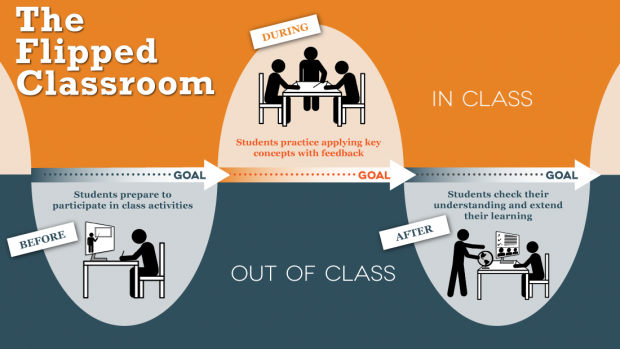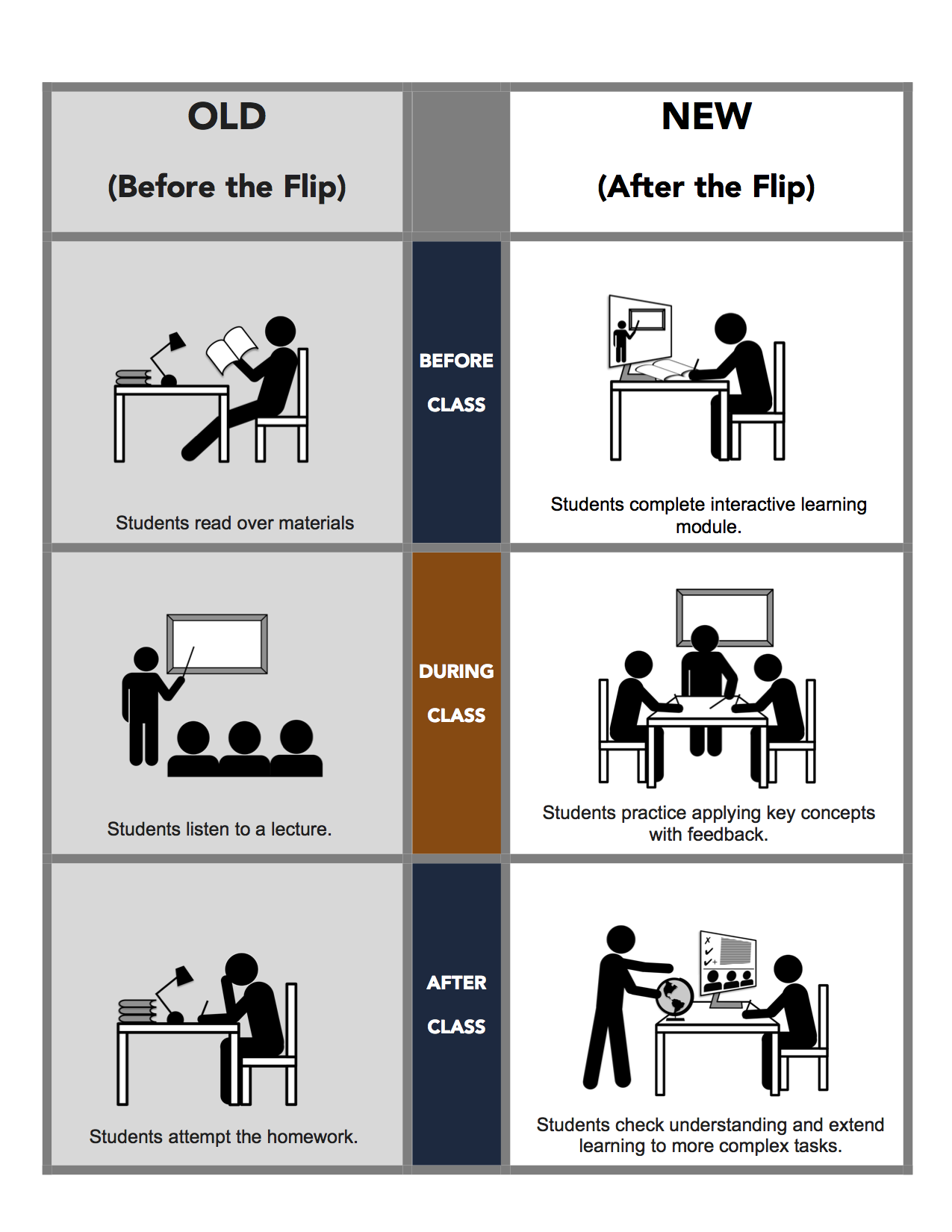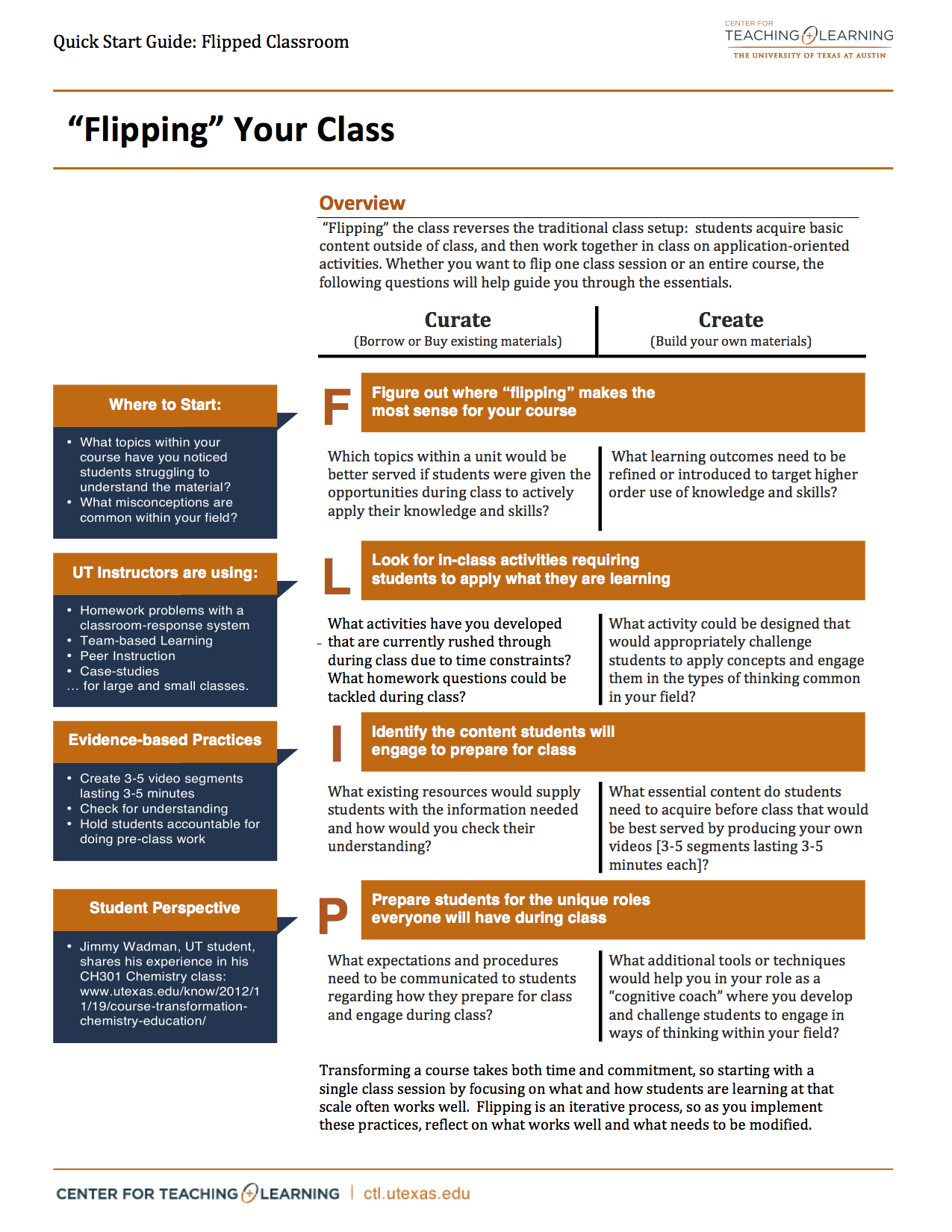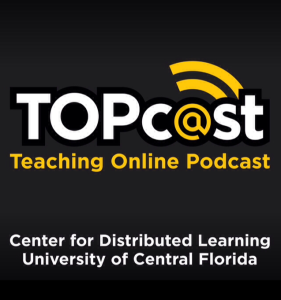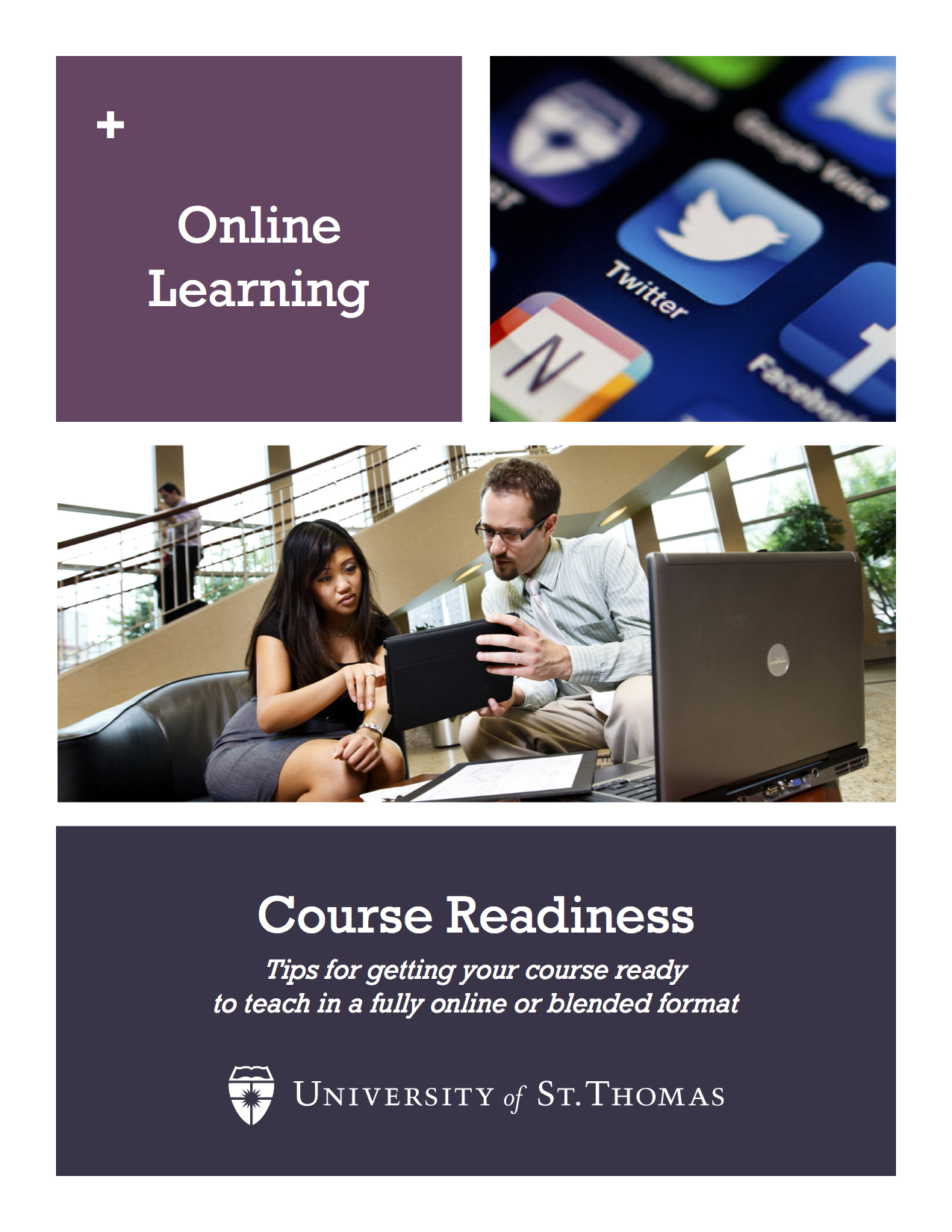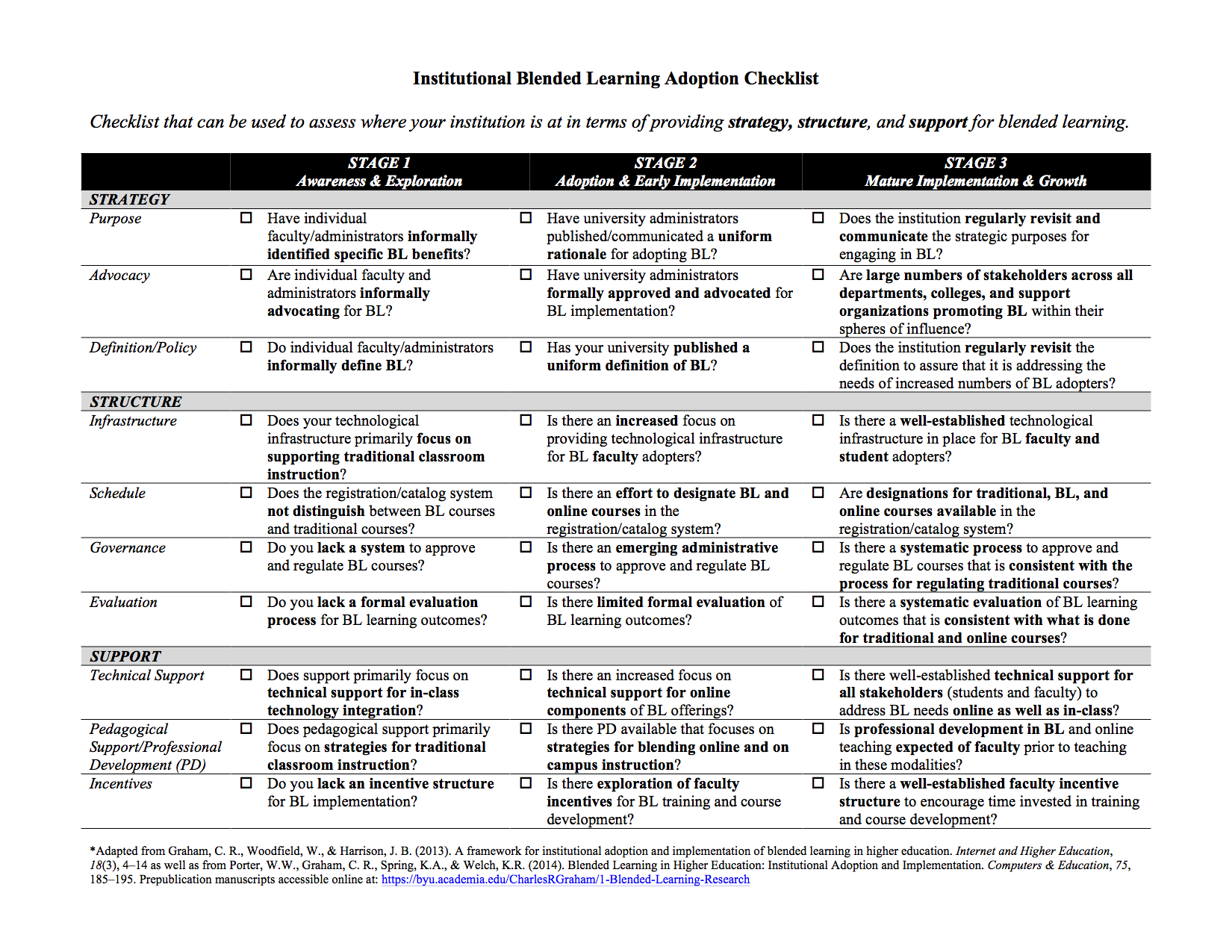The Faculty Development Center at the University of St. Thomas shares this great explanation by Francine Glazer in her book Blended Learning: Across the Disciplines, Across the Academy of the differences between flipped and blended learning that I wanted to share in its entirety:
“A flipped or inverted class is a form of blended learning. Whereas a flipped course doesn’t reduce the number of face-to-face classes or the amount of time the class meets in person, a blended course typically has fewer in person classes. In a blended course more of the course is taught online and students often have more control over the pace and time as they work though the course. The differentiating aspect of blended learning is that a significant portion of the course occurs in two areas: online and in person. Blended course design involves re-thinking the course activities so that there is a “seamless” transition between the online and in person classes — the blending of the in person and online activities reinforce each other to create a single, cohesive course.”
